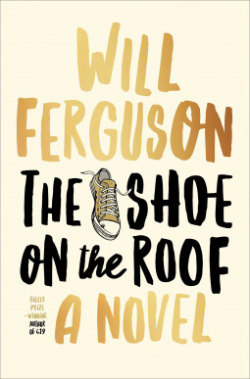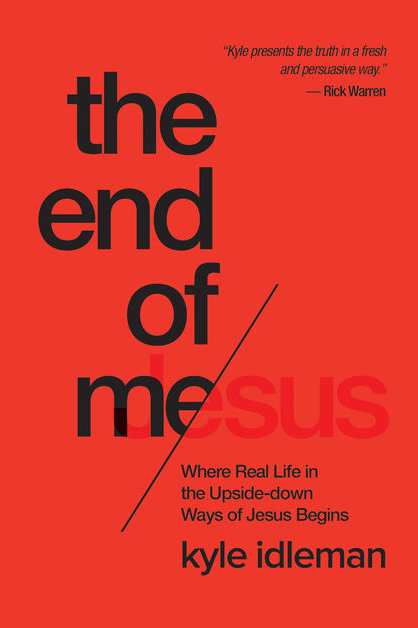Summary
Ever since his girlfriend ended their relationship, Thomas Rosanoff’s life has been on a downward spiral. A gifted med student, he has spent his entire adulthood struggling to escape the legacy of his father, an esteemed psychiatrist who used him as a test subject when he was a boy. Thomas lived his entire young life as the “Boy in the Box,” watched by researchers behind two-way glass.
But now the tables have turned. Thomas is the researcher, and his subjects are three homeless men, all of whom claim to be messiahs—but no three people can be the one and only saviour of the world. Thomas is determined to “cure” the three men of their delusions, and in so doing save his career—and maybe even his love life. But when Thomas’s father intervenes in the experiment, events spin out of control, and Thomas must confront the voices he hears in the labyrinth of his own mind.

Disclosure: I won this novel in a Goodreads giveaway. Copy was provided by the publisher.
The Shoe on the Roof, published October 17, 2017, is the newest novel by Will Ferguson, author of the Giller Prize winning novel 419. I’ve read a couple of Ferguson’s books before, though neither of the two were fiction. I really enjoyed his previous work, however, so I was immediately interested once I learned he had a new book coming out this year. Without actually looking much into the synopsis, my brain took the title and created vague notions of what to expect, all of which were not at all like the journey into love, neuroscience, and mental health that I embarked upon.
The title is in reference to a story told at the front of the novel — and brought up later as a parable — about a woman who has an out-of-body experience, explained away by the doctors who were operating on her until she distinctly recalls a lone shoe on the roof of the hospital, which the doctors are baffled to find there just as she described. It is the clash between reason/science and the seemingly unexplainable that much of this book deals with, told through the lens of Thomas Rosanoff, a med student and son of an esteemed psychiatrist. His knowledge of the brain’s anatomy and how the mind works is extensive, which situates him rather assertively against any notions of spirituality or God. In a desperate attempt to win back his girlfriend Amy Lamiell, and make a dent in his academic career, he attempts to cure the delusions of three men who each believe they are Jesus Christ, one of whom is Amy’s brother.
This novel delved unexpectedly deep into neuroscience, anatomy of the brain, and the scientific method in general. Through Thomas many functions of the human brain and the workings of the mind are explained while he is engaged with other people, in study, or more sleazily pursuing sexual conquest. It is a subject that has consumed his life, for better or worse, so it is the filter through which he sees other people. While I have scarcely retained technical terms about anatomy, the mind, and brain chemistry, it all works compellingly well within the context of the story and definitely left an impression. I cannot say it taught me any more than I already knew about such a complex topic, but it certainly gave me a worthwhile glimpse into that field. I especially liked how one of his earlier experiments — through which he first met Amy — is initially seen as an exhilarating breakthrough, until they learn they were overeager and did not conduct it properly blind, heavily skewing their results. It was a nice concise demonstration of how precise scientific experimentation needs to be, something I feel a lot of people fail to appreciate.
The characters were the particular strong point in this novel for me. Each had a lot of dimension and personality to them, feeling like living, breathing people with all the qualities, quirks, baggage, and flaws that come with that. Dialogue was often quite funny too, without sacrificing a natural feeling to the way characters talk. The relationship between Thomas and his father I found especially interesting. It realistically represented a strained father-son relationship without being overly dramatic. Thomas still depends on his father and his great influence in a number of ways, which he clearly has no qualms using to his benefit, yet there is an underlining resentment he has toward him. His father’s (often patronizing) overseeing of his life is something he cannot escape from, even as an adult. The three Jesuses themselves are interesting as well, particularly the raging Eli and the serene “Magician.” The former is very Old Testament in his declarations, yet has a humanity to him that makes him more than a bombastic lunatic. The latter is so calm, collected, and well-spoken that I was second-guessing whether he really was all that he said he was or in actuality a master manipulator.
While the characters, intriguing science, and snappy dialogue did make the reading experience worthwhile, the story itself is where things faltered heavily for me. Whenever I thought I had a handle on the story’s direction, a dramatic shift would occur. The only consistent factor throughout is Thomas’s declining state of mind, as the breakup that catalyzed the narrative also brought about a mental breakdown that he doesn’t immediately realize he’s going through. The experiment with the three Jesuses occurs throughout, but there is a substantial shift there as well, wrenching it from his control in a way that drastically changes the focus yet again. There is even a serial killer active within the story, a subplot which was resolved so unceremoniously you would think all that this person did was send harassing mail.
What the story does cover in the sphere of reason versus religion is interesting enough, but it is never given enough time to really stew on these ideas as new developments shake things up too dramatically. Thomas feels on the brink of something substantial with the three men on his own before he loses control of the experiment. After he does, he isn’t able to confront the new problems with that situation because he snaps and makes a move out of left field. It never really feels like he suffers any consequences for the outrageous things he does either. Some of his actions are even downright terrible, yet he seems to just get away with them without being directly confronted with what he has done. He’s affluent and privileged, sure, but that’s more of a background detail that can explain away the lack of backlash, rather than the story actually dealing with his actions. This left the ultimate conclusion of the story feeling a little unearned. I didn’t really care about where he ended up because as far as I could tell his mistakes didn’t cost him much.
The Shoe on the Roof is a good novel worth checking out, especially for how it covers the science of the human brain, mental health, and more importantly how we treat mental health. The characters are strong and the writing propelled me along nicely. The novel’s lack of focused direction was what really hurt its overall quality for me. It could have done much more with its set up, but Ferguson had Thomas pulled in so many different directions that it never took a hard enough look at any one thing. This was somewhat redeemed, however, by the tension and chemistry between characters, which was consistently engaging.
Advertisements Share this:




![Cowboy Stole My Heart (A River Ranch Novel) by [Lane, Soraya]](/ai/107/750/107750.jpg)